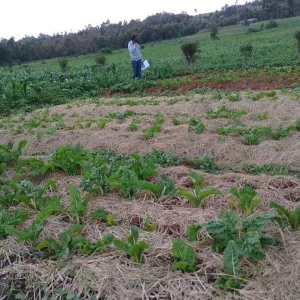Finding agroecology in practice on vegetable farms in Kiambu County, Kenya
Kiambu is a major vegetable-producing county in Kenya and one of the main sources of vegetables consumed in the city of Nairobi. The county produces tuberous vegetables such as carrots, bulb and stem vegetables such as onions, pod vegetables such as green peas and French beans, fruity vegetables such as tomatoes, and a range of exotic and Indigenous leafy vegetables.

Finding agroecology in practice on vegetable farms in Kiambu County, Kenya
Kiambu is a major vegetable-producing county in Kenya and one of the main sources of vegetables consumed in the city of Nairobi. The county produces tuberous vegetables such as carrots, bulb and stem vegetables such as onions, pod vegetables such as green peas and French beans, fruity vegetables such as tomatoes, and a range of exotic and Indigenous leafy vegetables. Exotic leafy vegetables produced in Kiambu County include kale, spinach, and lettuce, while amaranth, cowpea leaves, African nightshade, jute mallow, pumpkin leaves and spider plant are some of the most common African leafy vegetables produced in the county. According to 2022 county reports, Kiambu produced 56,525 tons of kale, 12,366 tons of spinach, 1,042 tons of amaranth and 1,699 tons of African nightshade.
Vegetable production in Kiambu is mainly done by smallholder farmers for both commercial and subsistence purposes, often grown on less than one acre of land per farmer. Vegetables are largely grown under rain-fed conditions. However, small-scale irrigation using watering cans or hand-held pipes is also common, especially in the drier parts of the county. Agroecological practices such as mulching, use of farmyard manure, biopesticides, agroforestry, water recycling and crop rotation are common among leafy vegetable producers in Kiambu.

